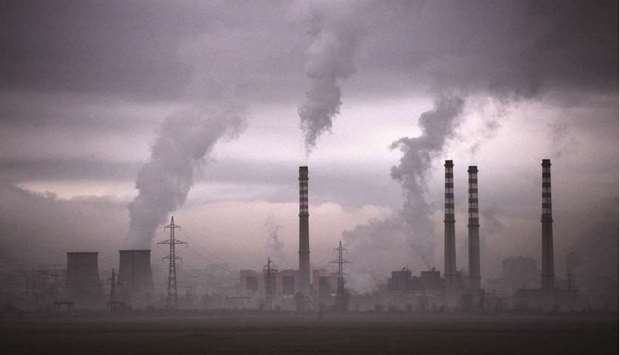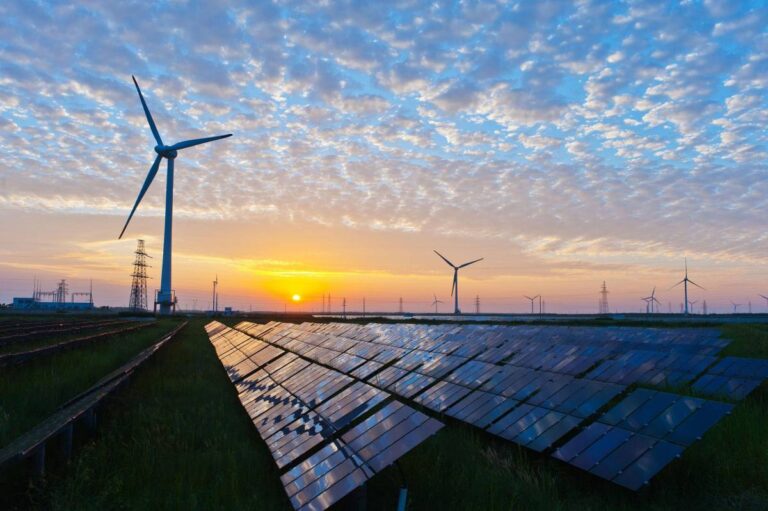Russia’s invasion supercharges the push to make a new green fuel

Europe’s push to ditch Russian natural gas is generating billions of dollars in new commitments to build a low-carbon hydrogen market.
A nearly 450% rise in gasoline prices in Europe last year made the green fuel of the future cost-competitive about a decade ahead of schedule, according to BloombergNEF. Now investment funds are joining governments and utilities in ambitious plans to make hydrogen a viable substitute for fossil fuels in manufacturing, transportation and heating.
“It’s kind of a tipping point,” said Phil Caldwell, chief executive of Ceres Power Holdings PLC, a UK-based hydrogen technology company. “You’re going to see that capital coming in on a massive scale now. There is no going back.”
Russia is ostracized on the world stage for invading Ukraine, but some of its harshest critics still need its oil and gas to keep their economies running. Europe is accelerating efforts to break that addiction, with Fortescue Metals Group Ltd. planning a $50 billion hydrogen supply chain project with German energy giant E.On SE; Norway’s Scatec ASA building a $5 billion production facility; and the investment fund Hy24 that allocates $1,600 million for infrastructure.
The case for hydrogen was already growing, mainly because of its climate benefits, but the war broadened investor interest by highlighting the need for energy security, Fortescue billionaire founder Andrew Forrest said in an interview.
“It has accelerated money flows,” Forrest said in London. “After the tanks crossed the border, there is none of that awareness in people’s minds. It is a physical, fiscal necessity.”
Some 93% of hydrogen producers, users and investors who attended a BNEF roundtable last month said they hoped the war would boost the development of the green hydrogen industry. Support for domestic production and imports from reliable sources will be key, participants said.
Green hydrogen has long been more expensive to produce than the traditional kind, which is made from natural gas in a process that releases carbon dioxide into the atmosphere.
That is starting to change. BNEF analysts found that green hydrogen, made by machines called electrolysers powered by the wind and sun, would be cost-competitive today with the fossil-fuel-based product.
“Without a doubt, the case for renewable hydrogen has improved significantly,” said Martin Neubert, chief commercial officer at Orsted A/S, which plans to produce green hydrogen for shipping giant AP Moller-Maersk A/S. Orsted is the largest developer of offshore wind farms.
Previously, that cost parity wasn’t expected until around 2030 through a combination of cheaper electrolysers and massive growth in turbine and solar panel deployment, making production cheaper.
But rising gasoline prices changed the calculus, meaning green hydrogen costs don’t need to fall that much to be competitive. Simply replacing current demand for hydrogen with the green kind in industries such as oil refining and fertilizer production could reduce the European Union’s demand for gas by 12%, according to BNEF.
At the same time, the bloc’s carbon price has nearly doubled in the last year, making emission-free gas more attractive.
“The economy is moving in favor of green hydrogen,” said Ivan Pavlovic, chief executive of French bank Natixis CIB, which is working on financing the fuel’s production. “The projects we’re looking at now seem more bankable from a financial perspective.”
However, the costs only cover part of the way. Gasoline prices could drop, returning the economy to where it was before. However, the war bolstered the political support essential to expanding the industry.
The European Union doubled its green hydrogen capacity target to 80 gigawatts by 2030, compared with less than 1 gigawatt today. The UK has just set a target of producing at least 5 gigawatts of hydrogen from electrolysers by 2030, the first time it has been so specific.
In the US, US President Joe Biden’s administration has said the infrastructure needed to increase natural gas shipments to Europe will be ready for conversion to handle hydrogen.
These projects will take years to materialize and will require a huge increase in renewable sources, but government support still gives private money the confidence to move. under management, and FiveT Hydrogen, the world’s first investor to focus exclusively on clean hydrogen.
“It’s a growth issue, it’s an ESG issue and it’s renewables at scale in countries that need it,” said Hy24 CEO Pierre-Etienne Franc. “Because of that, and because of greater certainty about the future, people are happy to make compromises.”
Danish fund manager Copenhagen Infrastructure Partners K/S initially raised €800 million ($880 million) for its first Energy Transition Fund, with plans to increase it to €2.3 billion. It recently acquired a stake in German electrolyser maker Sunfire GmbH and has agreed to buy 640 megawatts of the company’s machines for its own green hydrogen projects.
The London-listed L&G Hydrogen Economy UCITS ETF has exposure to companies with a minimum market capitalization of $200 million, including electrolyser manufacturers and hydrogen producers.
HH2E is seeking €2.7 billion to build 4 gigawatts of green hydrogen and green heat production capacity by 2030. Co-founder Andreas Schierenbeck, a former chief executive of German utility Uniper, said he is in talks with three financial investors to fundraising.
“There is a lot of money in the market,” Schierenbeck said. “Private equity firms want to invest now with early start-ups.”







